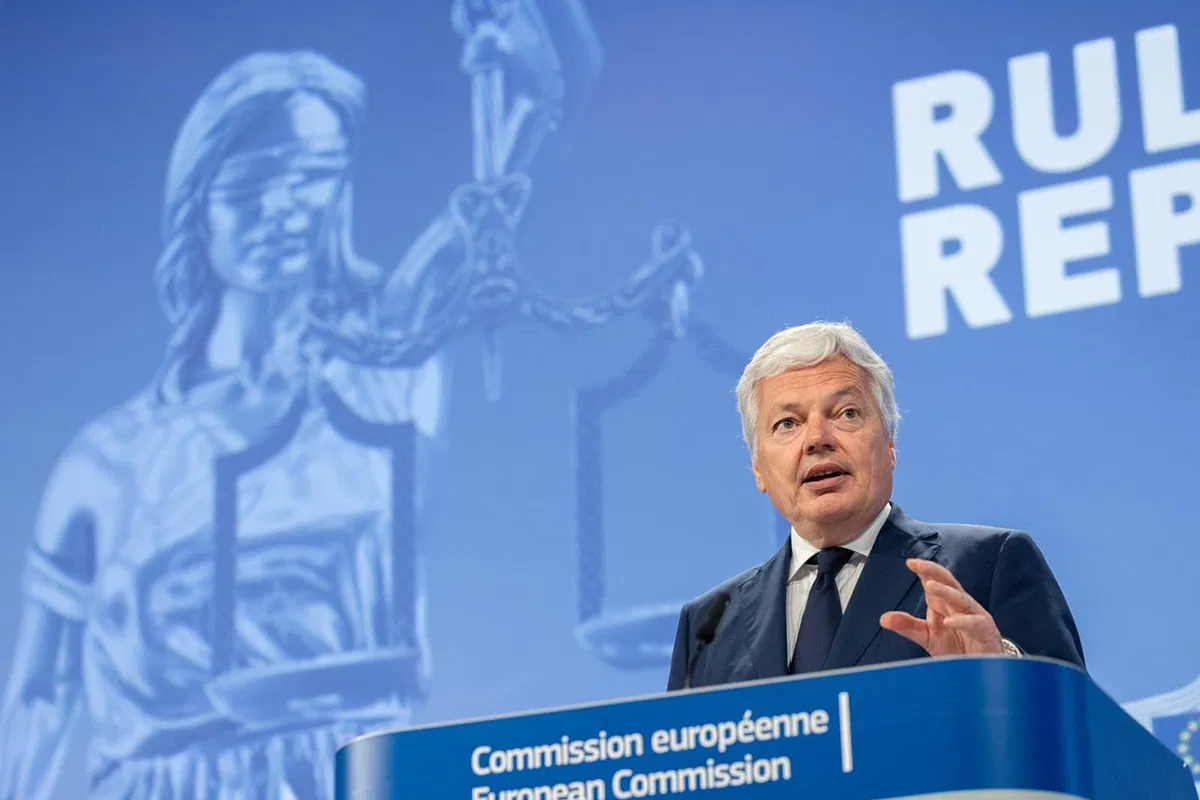Copyright euroweeklynews

Didier Reynders, former Belgian Deputy Prime Minister and former European Commissioner for Justice, has found himself in the spotlight for all the wrong reasons. Belgian authorities have charged him with suspected money laundering linked to nearly €1 million in funds that passed through his accounts over a ten-year period. The most eyebrow-raising element? A “lottery ticket” laundering scheme at the heart of the case. A political heavyweight with a hefty file Reynders, a veteran Belgian politician who served as finance minister, foreign minister and later as EU Justice Commissioner between 2019 and 2024, has been no stranger to scrutiny. But this probe may be the biggest challenge yet. In his home country, he was long nick-named “Teflon Didier” thanks to his ability to sidestep scandals. That may now be tested. The cash, the tickets and the tangle Belgian investigators allege that from 2008 to 2018, roughly €700,000 in cash was deposited into his accounts. On top of that, they believe around €200,000 was recycled via so-called “bulk lottery ticket” purchases — yes, you read that right: buying lottery tickets and turning them into clean deposits. In one of life’s bizarre twists, the man once overseeing the national lottery in his previous role is now accused of using that same system – ironically, if true – to tidy up money. While it might sound ridiculous, the mechanism is potentially serious: deposit cash, buy winning tickets, deposit the winnings, and suddenly the origin looks legit. Investigators say the scheme amounted to hundreds of thousands of euros. Banks and Brussels: who looks? Also caught in this web is ING Belgium. The bank is under investigation regarding its handling of Reynders’ accounts and its timing (or lack thereof) in reporting suspicious activities. The timeline is murky, and the optics are worse. The defence, the presumption, the procedure Reynders and his legal team have emphasised that he remains “innocent until proven guilty” – a baseline, yet one that feels under strain in the public eye. Belgian investigators snapped into action in December 2024, and formal charging followed in October/November 2025. Belgian criminal-procedure laws are notoriously slow (and secretive), meaning the court of public opinion is far ahead of the court of justice. With media reports feeding the narrative, the outcome of the charge is still to be decided. Why this matters beyond Brussels cafés At first blush, this might read as “a politician does dodgy stuff”. But for the European Commission and Europe’s broader integrity ambitions, it’s messier. The former Commissioner for Justice – and hence protector of rule-of-law norms across the EU – is now charged with flouting exactly the kind of rules his office was meant to uphold. That rent in the façade may yet widen. Dig one layer deeper and you see structural concerns: oversight of politically exposed persons (PEPs), the ability of banks to spot, report and act on suspicious flows (or not to), and whether EU ethics frameworks genuinely function when the most senior players are involved. What happens next? We are in the waiting phase. Belgian investigators will continue combing through banking records, lottery transaction logs and asset flows. Meanwhile, a trial (if there is one) could still be years away. The public watches, memes awaken (yes, the lottery angle invites jokes), but underneath all the chortling is a serious question: should a former Commissioner carry on in public life, or even in politics, while shielded by such a cloud? If nothing else, this episode may prompt a broader overhaul of AML (anti-money laundering) practices, especially around unconventional channels like gambling. The notion that large-scale lottery purchases are not suspicious is no longer tenable. Didier Reynders’ career has spanned national capitals and EU corridors. But today he stands under investigation—accompanied by piles of lottery stubs, cash deposit records, and uncomfortable questions. Whether he is proven guilty or exonerated, the implications reverberate far beyond him. They affect the credibility of EU justice, the soundness of bank compliance and, yes, the odd idea that the lottery might be a legit place to “clean” money.



